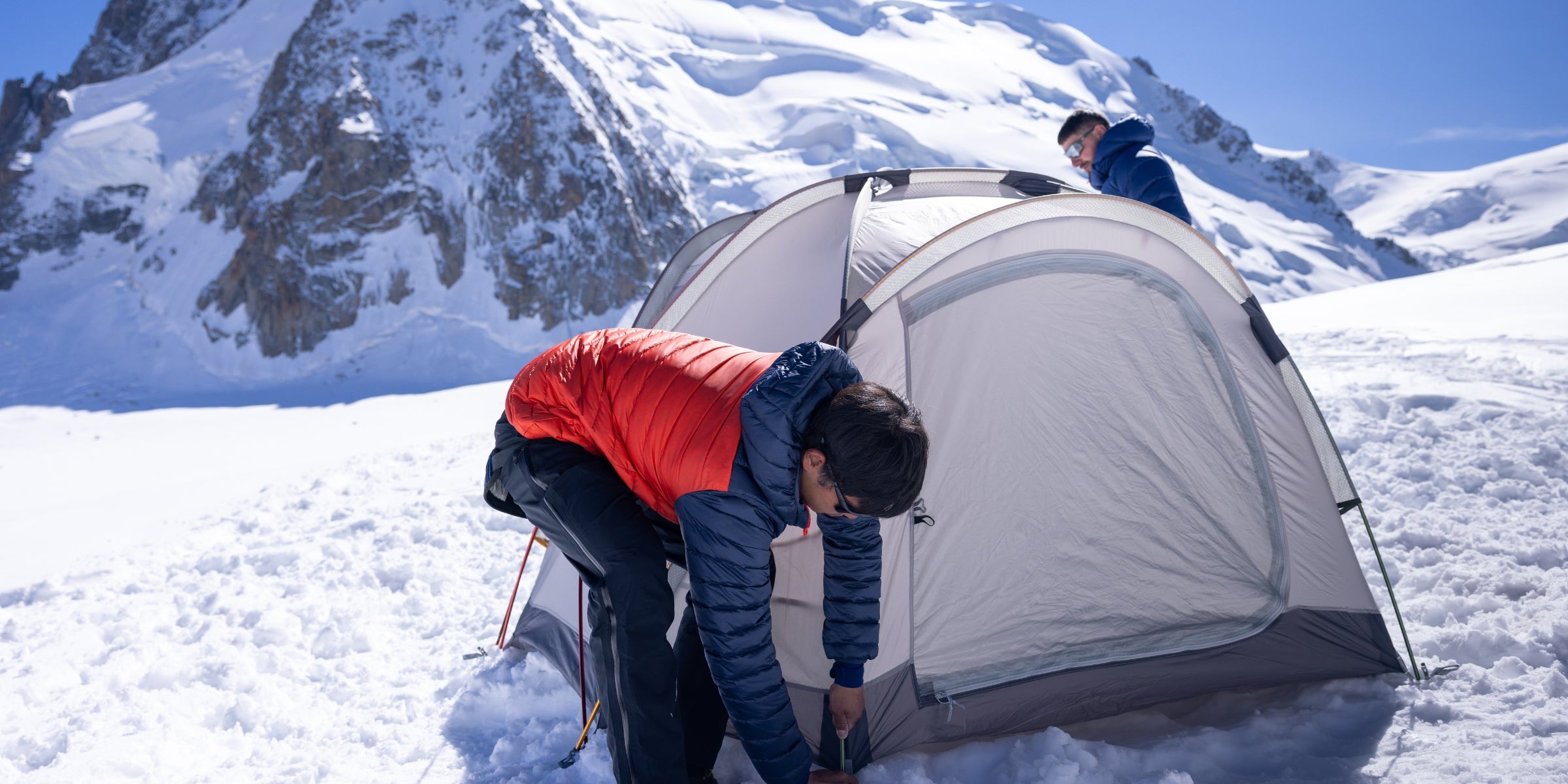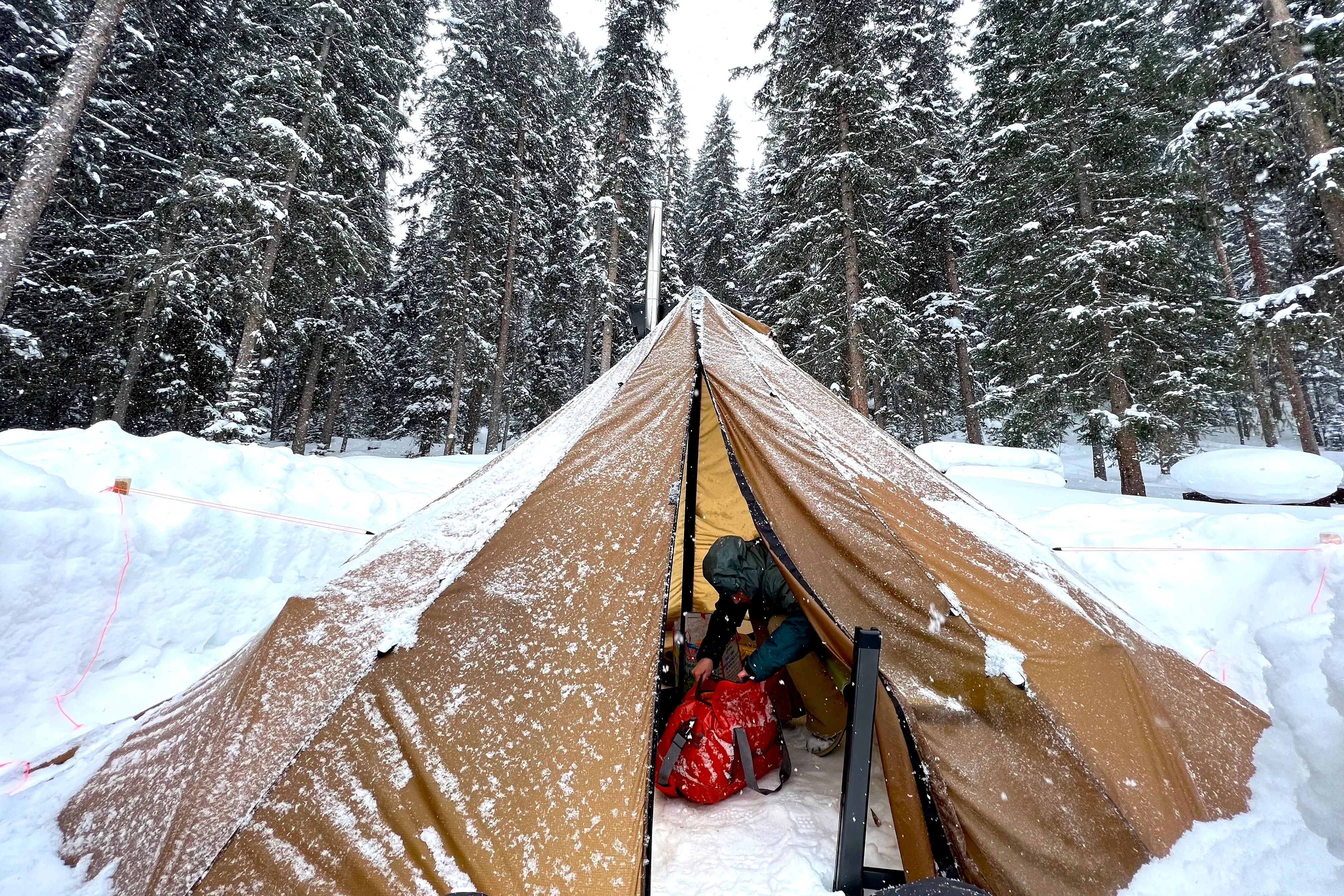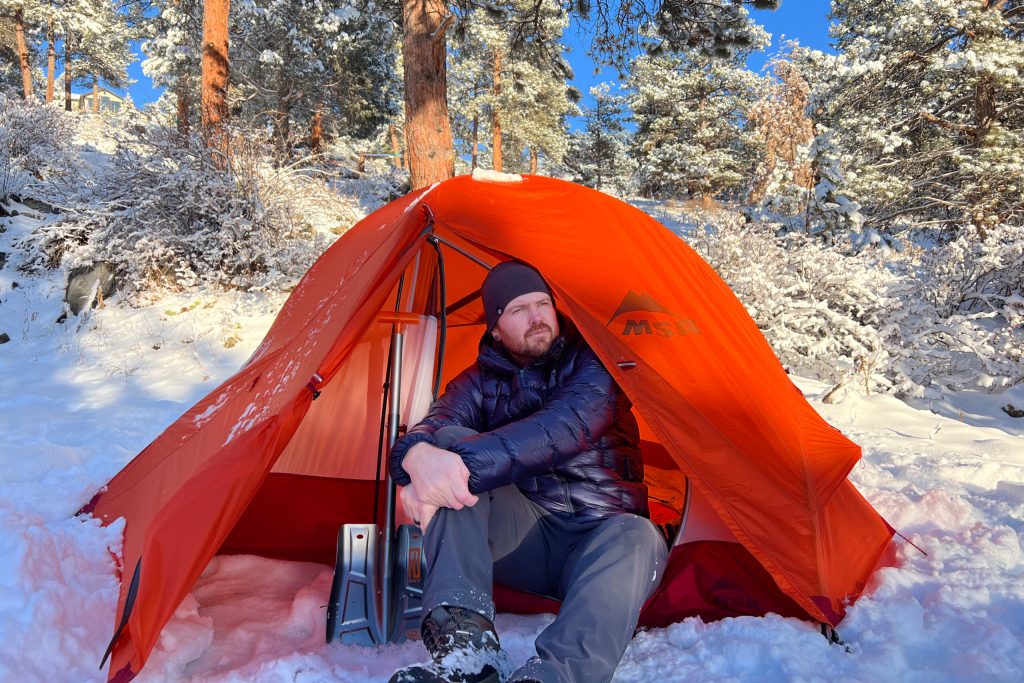When winter calls, your tent becomes your lifeline. Choosing the best tent for winter camping isn’t just about comfort—it’s about safety, warmth, and peace of mind when the cold bites hard.
You want a shelter that stands strong against snow, wind, and freezing temperatures. But with so many options out there, how do you find the perfect one for your needs? Keep reading, because we’ll break down everything you need to know to pick a tent that will keep you protected and cozy, no matter how harsh the winter gets.
Your next cold-weather adventure deserves the right gear—let’s find it together.
Key Features Of Winter Tents
Winter camping needs a tent that can handle cold and harsh weather. The right tent keeps you warm and safe. It also protects you from wind, snow, and moisture.
Choosing a winter tent means looking at important features. These features help the tent perform well in cold conditions and bad weather.
Insulation And Warmth
Winter tents use strong materials to keep heat inside. They often have thicker fabric and fewer mesh parts. This stops cold air from getting in.
Some tents have double walls to trap warm air. This helps keep campers cozy even in freezing weather.
Wind Resistance
Winter tents must resist strong winds. They have sturdy poles and low profiles to avoid being blown away. Good tents stay stable in gusty weather.
- Strong, flexible poles
- Low and aerodynamic shape
- Extra guy lines for support
Snow Load Capacity
Snow can build up on tents during winter camping. The best tents have strong frames to hold heavy snow. This prevents the tent from collapsing.
- Reinforced poles and joints
- Steep roof design for snow to slide off
- Durable fabric that won’t sag
Ventilation
Good ventilation stops moisture inside the tent. Moisture can make the tent cold and damp. Winter tents use vents that keep air moving but block cold wind.
This helps reduce condensation and keeps the inside dry and comfortable.
Weight And Portability
Winter tents should be light enough to carry on long trips. They use strong but lightweight materials. This helps campers move easily in snow and cold.
- Lightweight poles like aluminum
- Compact design for easy packing
- Strong fabric that balances weight and durability
Types Of Winter Tents
Winter tents are made to keep you warm and safe in cold weather. They have strong materials and designs that block wind and snow.
There are different types of winter tents. Each type fits different activities and weather conditions.
Four-season Tents
Four-season tents work well in winter and other seasons. They have strong poles and thick fabric to resist snow and wind.
These tents have less mesh to keep warmth inside. They are heavier than summer tents but very durable.
Expedition Tents
Expedition tents are for harsh, cold places. They are built to handle heavy snow and strong winds.
These tents often have extra poles and strong frames. They offer more space for gear and people.
Mountaineering Tents
Mountaineering tents are for climbing high mountains. They are light but very strong to fight cold and wind.
These tents use tough materials and have good ventilation. They keep you dry and warm in rough weather.
Geodesic And Dome Tents
Geodesic tents have many poles that cross each other. This shape makes them very stable in wind and snow.
Dome tents have a round shape. They shed snow well and are easy to set up in cold weather.
- Geodesic tents are best for strong wind and heavy snow.
- Dome tents are lighter and good for most winter trips.
- Both types keep campers warm and safe.
Top Durable Winter Tents In 2025
Winter camping needs strong tents that protect from cold and wind. Durability is key for a safe trip.
In 2025, several tents stand out for their strength and design. Here are the best durable winter tents.
Best Overall Tent
The best overall winter tent combines durability, space, and easy setup. It works well in most cold weather.
This tent has strong poles and thick fabric. It keeps you warm and dry during snow and wind.
- Four-season rating for all weather
- Good ventilation to reduce condensation
- Roomy interior for comfort
Best Budget-friendly Option
A budget-friendly winter tent offers solid protection without a high price. It fits campers on a budget.
This tent uses reliable materials and simple design. It handles cold nights and moderate snow well.
- Affordable price with durable fabric
- Easy to set up for beginners
- Compact and lightweight
Best For Extreme Conditions
Extreme condition tents are built to survive harsh winter storms and strong winds. They are very tough.
These tents have reinforced poles and heavy-duty fabric. They offer the best protection in freezing weather.
- Heavy-duty frame for strong wind resistance
- Extra insulation to keep heat inside
- Snow flaps to block drifting snow
Best Lightweight Tent
Lightweight winter tents are easy to carry for hikers and backpackers. They do not weigh you down.
They use strong yet light materials. These tents balance weight and winter protection well.
- Ultralight poles and fabrics
- Compact size for easy packing
- Good wind and snow resistance
Best For Group Camping
Group winter tents offer plenty of space for several people. They keep everyone warm and dry together.
These tents have multiple rooms and entrances. They are sturdy enough for group winter trips.
- Large interior space for comfort
- Strong frame for heavy snow
- Good ventilation for many campers

Credit: alpkit.com
Materials That Boost Durability
Choosing the right materials is key for a strong winter camping tent. Durable materials help your tent last longer and protect you from cold and wind. They keep the tent stable during harsh weather.
Knowing about fabrics, poles, and seams can help you pick a tent that stands up to winter conditions. These parts work together to make the tent tough and reliable.
Fabric Types
Winter tents often use heavy-duty fabrics. Nylon and polyester are common choices because they resist tearing and wet weather. They also dry quickly, which is important in snow.
Look for fabrics with a waterproof coating. Silicone or polyurethane coatings add extra protection. These coatings stop water from soaking through and make the fabric stronger.
- Nylon: lightweight, strong, dries fast
- Polyester: resists stretching, holds shape well
- Silicone-coated fabric: water-resistant, flexible
- Polyurethane-coated fabric: waterproof, durable
Pole Materials
Poles support the tent and keep it upright in strong winds. Aluminum poles are popular because they are strong and light. They bend without breaking, which is good for winter weather.
Some tents use fiberglass poles. These are cheaper but less durable. Carbon fiber poles are very strong but can be expensive. Choose poles that match your needs and budget.
- Aluminum: strong, lightweight, flexible
- Fiberglass: affordable, less durable
- Carbon fiber: very strong, lightweight, costly
Seam Construction
Seams join the fabric pieces. Good seams prevent water and cold air from entering the tent. Look for tents with taped or welded seams. These stop leaks better than simple stitched seams.
Double-stitched seams add extra strength. They hold up well in wind and snow. Reinforced seams near high-stress areas help the tent last longer.
- Taped seams: cover stitches to block water
- Welded seams: fuse fabric edges without holes
- Double stitching: adds strength and durability
- Reinforced corners: protect high-stress points
Tips For Choosing The Right Winter Tent
Picking the best tent for winter camping is important for safety and comfort. A good tent keeps you warm and protects you from snow and wind.
Consider your needs carefully before buying. This guide helps you choose the right winter tent.
Assessing Your Camping Needs
Think about how many people will use the tent. Also, plan how long your trips usually last. This helps you pick the right size and features.
If you camp with family or friends, choose a tent with enough space for everyone. For solo trips, a smaller tent works well.
Balancing Weight And Durability
Winter tents should be strong to handle snow and wind. At the same time, they should not be too heavy to carry. Find a balance that suits your trip.
Durable materials and sturdy poles offer good protection. Lightweight tents make hiking easier but may cost more.
Considering Weather Conditions
Check the usual weather where you camp. Strong winds and heavy snow need tents designed to resist harsh conditions. Look for tents rated for four seasons.
- Four-season tents work well in cold, snowy weather
- Look for tents with strong frames and low profiles
- Good ventilation helps reduce condensation inside
Setting A Budget
Winter tents can range from affordable to expensive. Decide how much you want to spend before shopping. This helps narrow your choices.
Remember that a good tent is an investment in safety. Sometimes spending a bit more means better quality and comfort.

Credit: gearjunkie.com
Caring For Your Winter Tent
A good winter tent keeps you safe and warm in cold weather. Taking care of it helps it last longer and work better.
Proper care includes storing, cleaning, and fixing the tent. Each step protects the fabric and structure from damage.
Proper Storage
Store your winter tent in a dry place away from sunlight. Moisture and heat can harm the fabric and poles.
Keep the tent loose inside its bag. Avoid packing it too tight to stop creases and tears.
- Dry the tent fully before storing
- Use a breathable storage bag, not plastic
- Keep it in a cool, dark place
- Store poles separately to avoid pressure
Cleaning And Maintenance
Clean your winter tent after each trip. Remove dirt, snow, and salt to protect the fabric and zippers.
Use mild soap and warm water. Avoid harsh chemicals that can damage waterproof coatings.
- Brush off loose dirt before washing
- Spot clean stains gently
- Rinse thoroughly to remove soap
- Air dry completely before storing
Repairing Damage
Fix small tears and holes quickly. This stops damage from getting worse and keeps the tent waterproof.
Use repair patches or tape made for tents. Replace broken poles and broken zippers as soon as possible.
- Patch holes with waterproof tape or fabric
- Glue or sew torn seams carefully
- Carry a repair kit on trips
- Check poles for cracks and fix or replace

Credit: www.reddit.com
Frequently Asked Questions
What Features Are Important For Winter Tents?
Winter tents should have strong poles, a sturdy structure, and excellent wind resistance. Look for tents with a full-coverage rainfly and snow flaps. Ventilation is crucial to prevent condensation. Ensure the tent has a high hydrostatic head rating. Double-wall tents offer better insulation.
Choose a tent with a durable floor for extra warmth.
How Do I Choose The Right Size Tent?
Consider the number of campers and gear storage. A tent should have enough space for sleeping bags and equipment. Smaller tents retain heat better, but ensure everyone has room to sleep comfortably. Check the tent’s dimensions before purchasing. Extra vestibule space can be useful for gear.
Are Four-season Tents Necessary For Winter Camping?
Four-season tents are highly recommended for winter camping. They are designed to withstand harsh weather conditions. These tents have stronger poles and robust materials. They provide better insulation and wind resistance. While three-season tents can work, four-season tents offer more protection and comfort in winter conditions.
What Is The Best Tent Material For Winter?
Polyester and nylon are popular materials for winter tents. They are durable and weather-resistant. Polyester is more UV-resistant, while nylon is lighter. Both materials have coatings for waterproofing. Look for ripstop fabric to prevent tears. Quality construction is key for handling snow and wind.
Conclusion
Choosing the best tent for winter camping means thinking about warmth and strength. A good tent keeps out cold wind and snow. It must be strong to handle heavy weather. Look for tents with sturdy poles and thick fabric. Easy setup matters too, especially in cold weather.
Remember, your tent is your shelter and safety. Picking the right one makes winter camping more fun and safe. Stay warm, stay dry, and enjoy the snowy outdoors. Your perfect winter tent helps you do just that.

